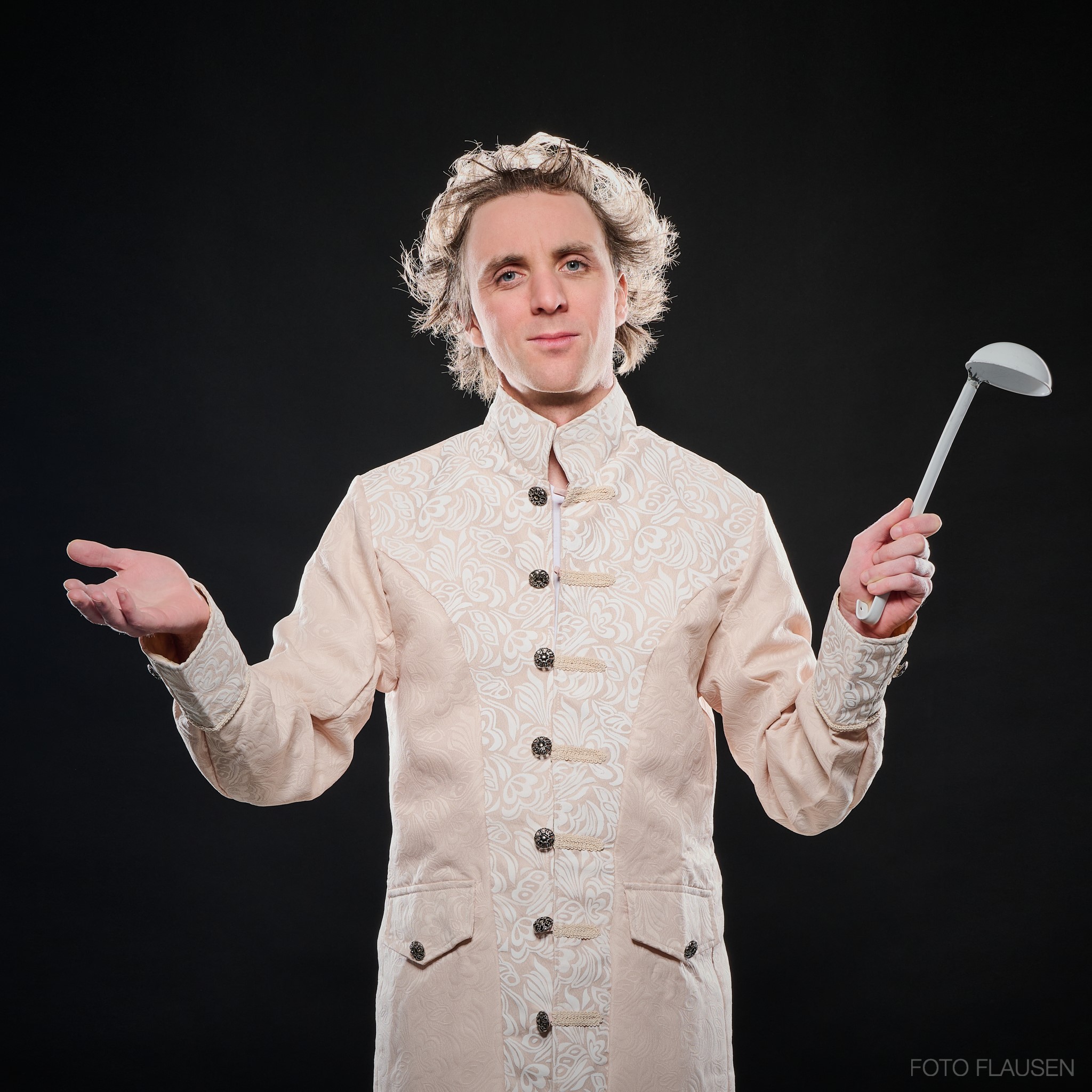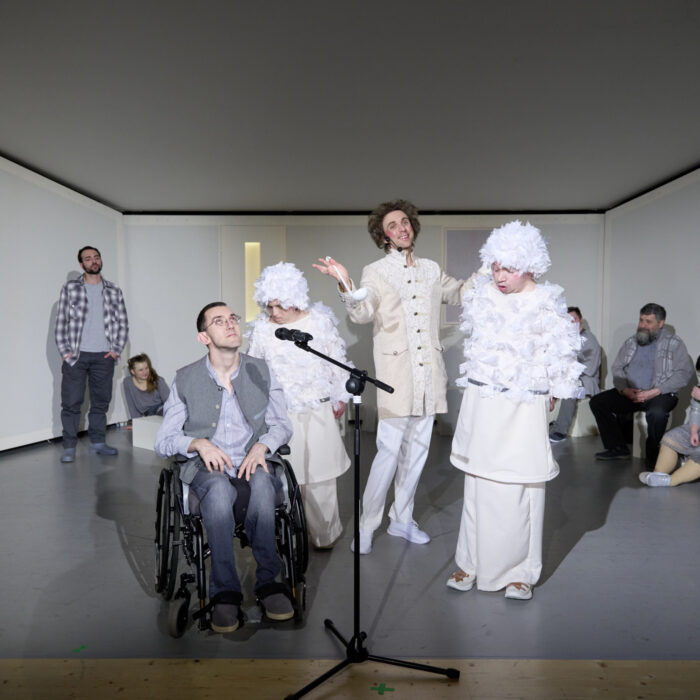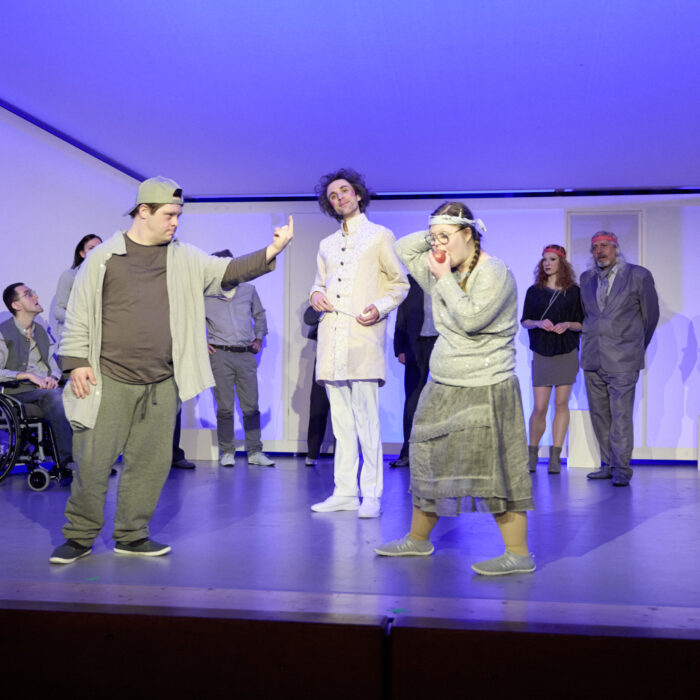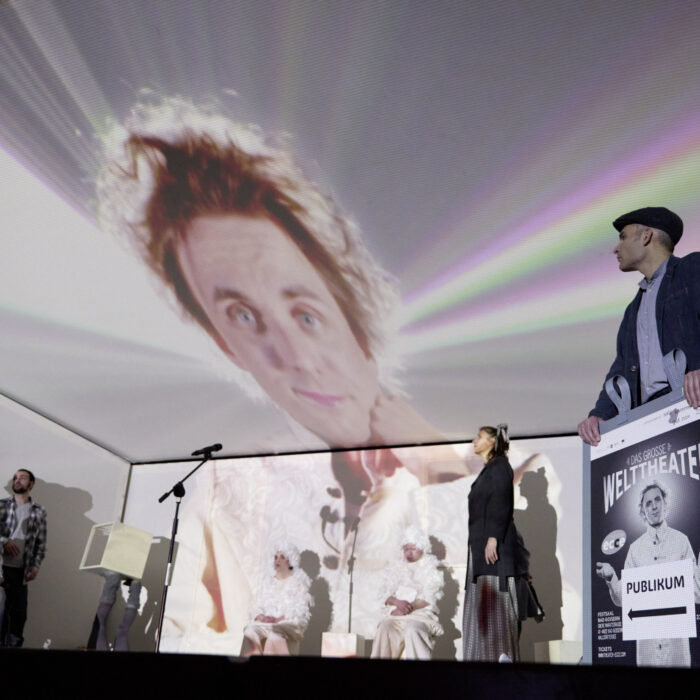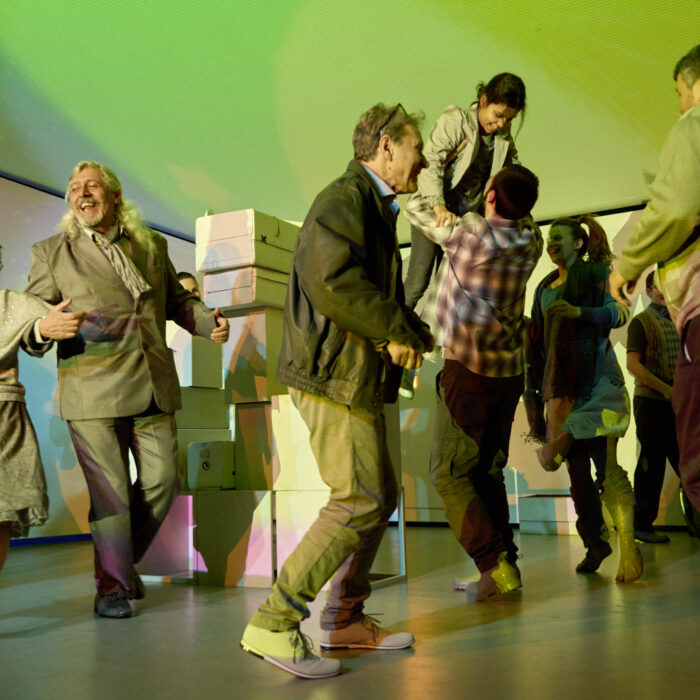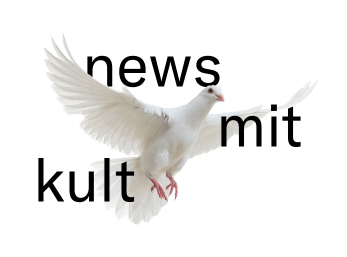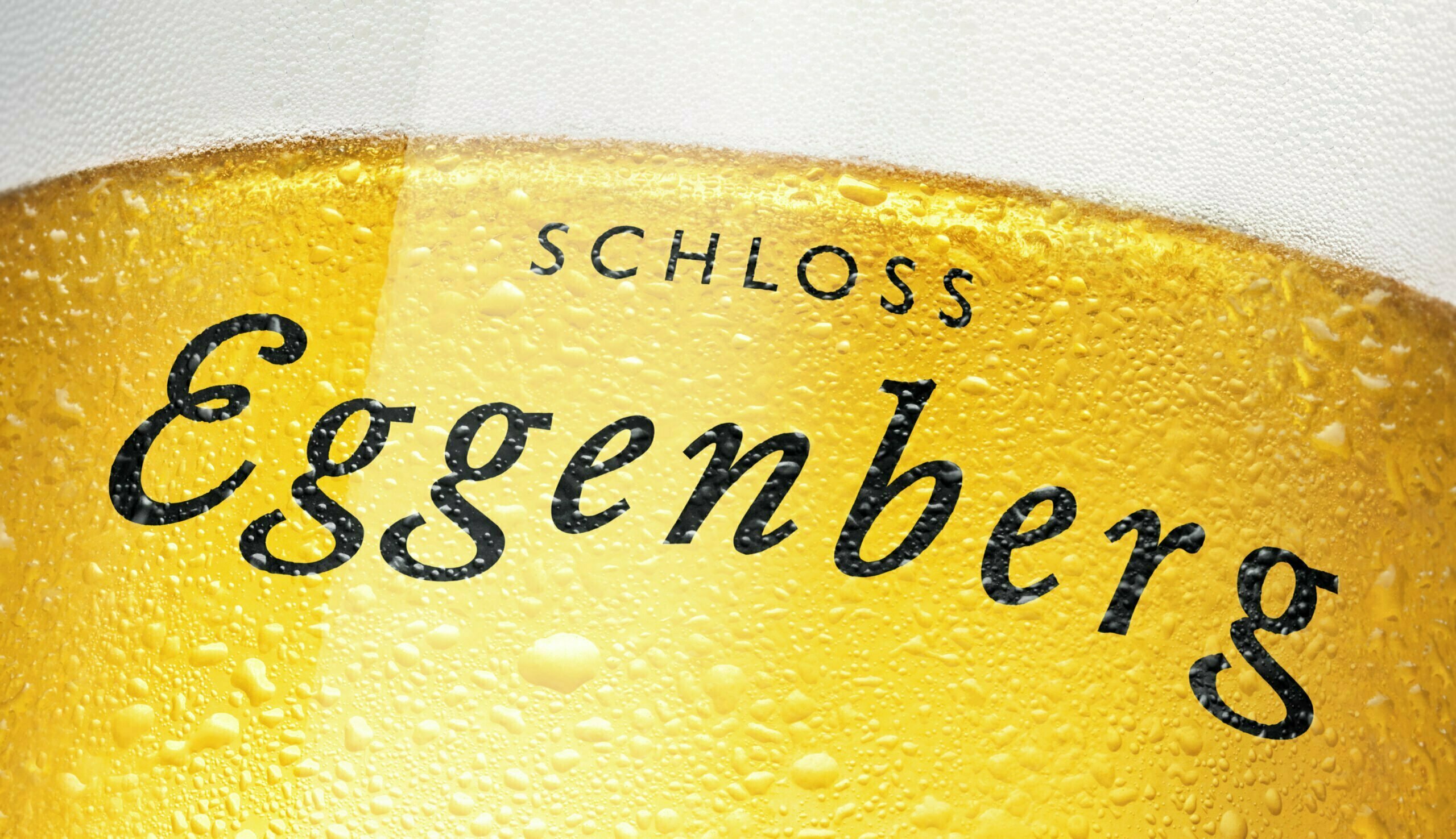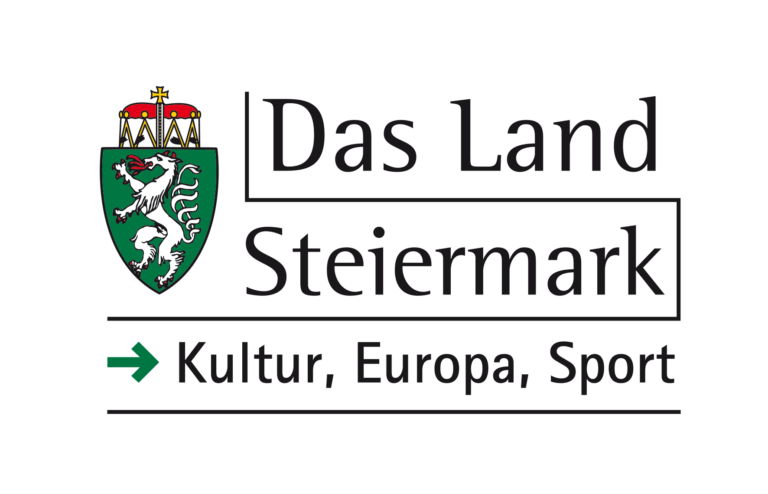There is the community worker who looks after the Konrad Deubler monument in Bad Goisern and also works as a gravedigger. He meets Bruno Eichleitner, a sociologist of science and technology. He has recently returned to the Salzkammergut to look after his parents and is in a bitter neighbourhood dispute with the passionate hunter, millionaire heiress and Princess Neuhaus, who has settled in the Salzkammergut. Her grandfather once shot Eichleitner’s grandfather while poaching. He was acquitted by a fellow hunter.
The “multi-jobber” from Kazakhstan meets the official for calibration and surveying, who actually wanted to become a nuclear physicist. Now he lives on his parents’ abandoned farm and tinkers with letter bombs.
The once famous Syrian actor suddenly finds himself in a troupe of amateurs, people with disabilities and has to play “with them”. Like “King Gilgamesh” 5000 years ago, he dreams of eternal life.
A tree hugger suddenly appears, an underpaid nurse, a university dropout who works in a gym and beauty salon and dreams of a career as an influencer, an unaccompanied underage girl from a foreign country, a pension owner who spent her youth in a commune and now has a son who speculates on the stock market, a vegan butcher and many others are faced with constant improvisation tasks by the “creator”. But first it’s time to assign roles. Who is rich, who is poor? Who will be crowned the “beauty”? (Perhaps even the Daffodil Queen?) Who will play the role of reason?
Only one thing is certain: there will definitely be a party at the “Kiosk of the Last Judgement” with great live music, regardless of whether the apocalypse comes or not? Nobody gets out of here alive anyway! We might as well celebrate life in all its diversity – regardless of the person!
Thoughts on the play
“El gran teatro del mundo” by Calderon de la Barca from the Spanish Baroque period was adapted by Hugo von Hofmannsthal as “Salzburg’s great world theatre”. These models form the basis for the theatrical design of a contemporary “world view”. In the original play, the baroque world order with its clear hierarchy is precisely drawn: God at the top, then king, citizen, peasant, beggar,… and an unborn child. Beauty, Fortuna, Reason and other figures appear in this round dance that revolves from birth to death. Everyone has their fixed role in society and at the end there is the “Last Judgement”. A judgement is made as to whether a life was “good or bad”.
Based on this play – with its clear value orientation and distribution of roles – theatre ecce wants to question the confused present with a great deal of humour. The theatre version is the result of numerous regional workshops, preliminary projects, discussions and research. It features a diverse ensemble of professional and amateur actors, acrobats, dancers and musicians.

